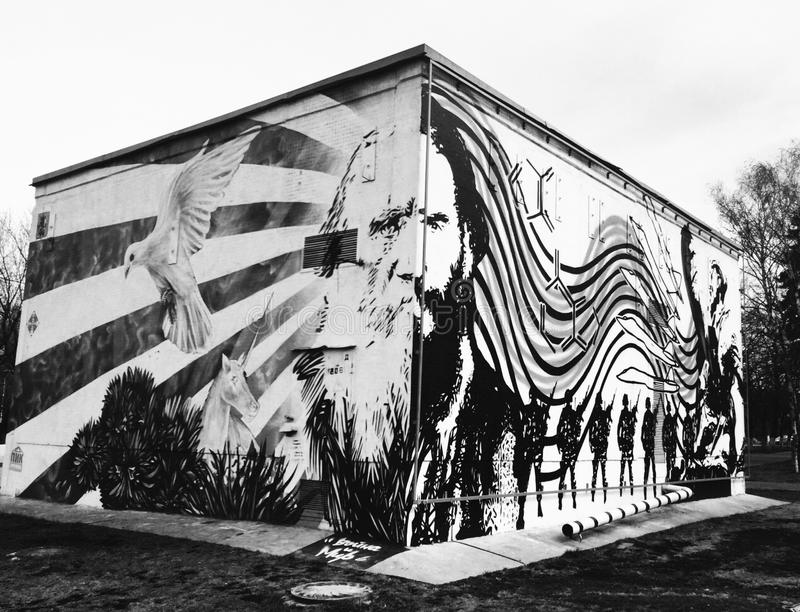Leo Tolstoy Archive
Written: 1889
Source: Original Text from TheAnarchistLibrary.org
Transcription/Markup: Andy Carloff
Online Source: RevoltLib.com; 2021

Liza was gradually recovering, she could move about and was only uneasy at the change that had taken place in her husband, which she did not understand.
Varvara Alexeevna had gone away for a while, and the only visitor was Eugene’s uncle. Mary Pavlovna was as usual at home.
Eugene was in his semi-insane condition when there came two days of pouring rain, as often happens after thunder in June. The rain stopped all work. They even ceased carting manure on account of the dampness and dirt. The peasants remained at home. The herdsmen wore themselves out with the cattle, and eventually drove them home. The cows and sheep wandered about in the pastureland and ran loose in the grounds. The peasant women, barefoot and wrapped in shawls, splashing through the mud, rushed about to seek the runaway cows. Streams flowed everywhere along the paths, all the leaves and all the grass were saturated with water, and streams flowed unceasingly from the spouts into the bubbling puddles. Eugene sat at home with his wife, who was particularly wearisome that day. She questioned Eugene several times as to the cause of his discontent, and he replied with vexation that nothing was the matter. She ceased questioning him but was still distressed.
They were sitting after breakfast in the drawing room. His uncle for the hundredth time was recounting fabrications about his society acquaintances. Liza was knitting a jacket and sighed, complaining of the weather and of a pain in the small of her back. The uncle advised her to lie down, and asked for vodka for himself. It was terribly dull for Eugene in the house. Everything was weak and dull. He read a book and a magazine, but understood nothing of them.
“I must go out and look at the rasping-machine they brought yesterday,” said he, and got up and went out.
“Take an umbrella with you.”
“Oh, no, I have a leather coat. And I am only going as far as the boiling-room.”
He put on his boots and his leather coat and went to the factory; and he had not gone twenty steps before he met her coming towards him, with her skirts tucked up high above her white calves. She was walking, holding down the shawl in which her head and shoulders were wrapped.
“Where are you going?” said he, not recognizing her the first instant. When he recognized her it was already too late. She stopped, smiling, and looked long at him.
“I am looking for a calf. Where are you off to in such weather?” said she, as if she were seeing him every day.
“Come to the shed,” said he suddenly, without knowing how he
said it. It was as if someone else had uttered the words.
She bit her shawl, winked, and ran in the direction which led from the garden to the shed, and he continued his path, intending to turn off beyond the lilac-bush and go there too.
“Master,” he heard a voice behind him. “The mistress is calling you, and wants you to come back for a minute.”
This was Misha, his man-servant.
“My God! This is the second time you have saved me,” thought Eugene, and immediately turned back. His wife reminded him that he had promised to take some medicine at the dinner hour to a sick woman, and he had better take it with him.
While they were getting the medicine some five minutes elapsed, and then, going away with the medicine, he hesitated to go direct to the shed lest he should be seen from the house, but as soon as he was out of sight he promptly turned and made his way to it. He already saw her in imagination inside the shed smiling gaily. But she was not there, and there was nothing in the shed to show that she had been there.
He was already thinking that she had not come, had not heard or understood his words—he had muttered them through his nose as if afraid of her hearing them—or perhaps she had not wanted to come. “And why did I imagine that she would rush to me? She has her own husband; it is only I who am such a wretch as to have a wife, and a good one, and to run after another.” Thus he thought sitting in the shed, the thatch of which had a leak and dripped from its straw. “But how delightful it would be if she did come — alone here in this rain. If only I could embrace her once again, then let happen what may. But I could tell if she has been here by her footprints,” he reflected. He looked at the trodden ground near the shed and at the path overgrown by grass, and the fresh print of bare feet, and even of one that had slipped, was visible.
“Yes, she has been here. Well, now it is settled. Wherever I may see her I shall go straight to her. I will go to her at night.” He sat for a long time in the shed and left it exhausted and crushed. He delivered the medicine, returned home, and lay down in his room to wait for dinner.